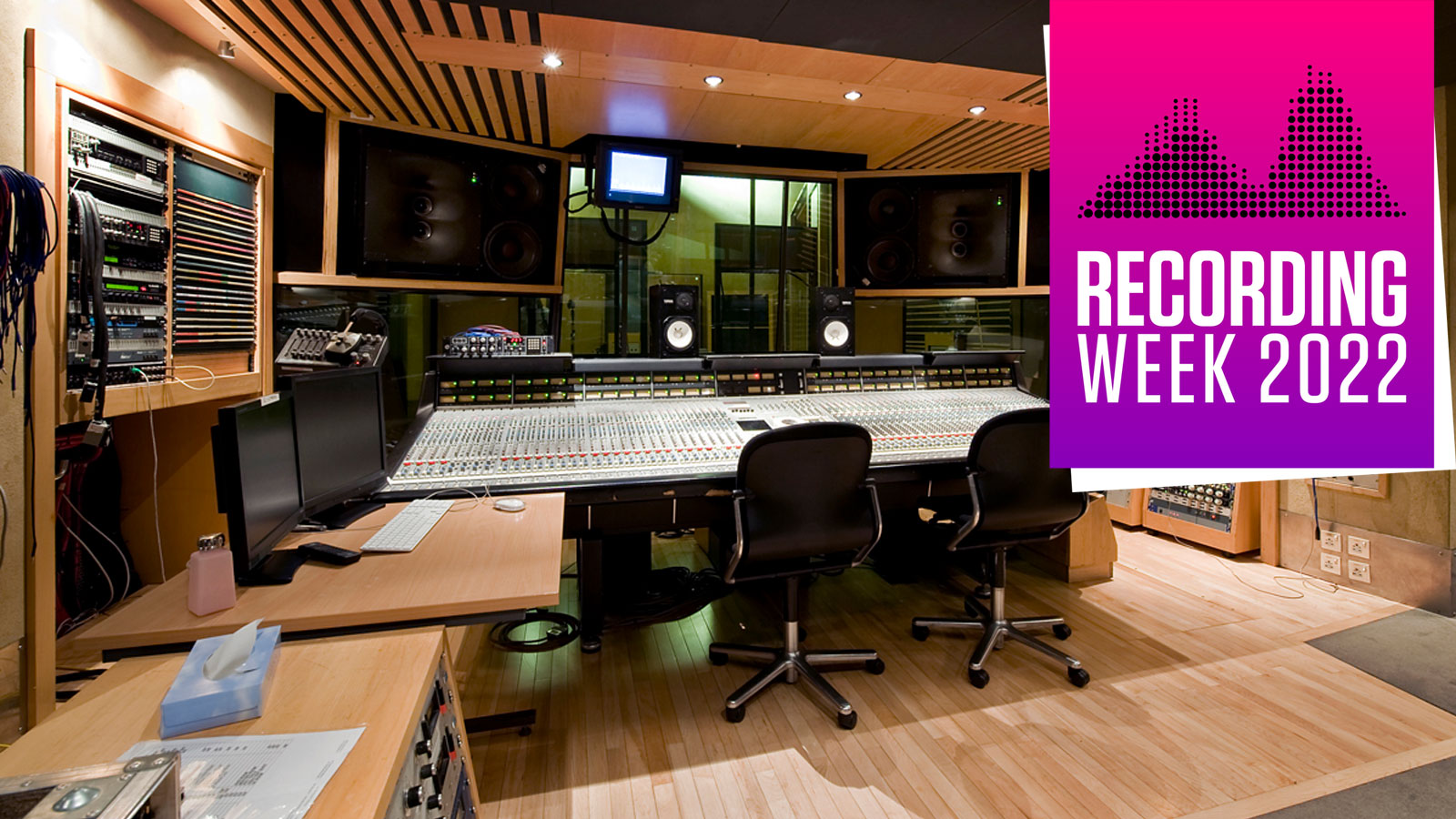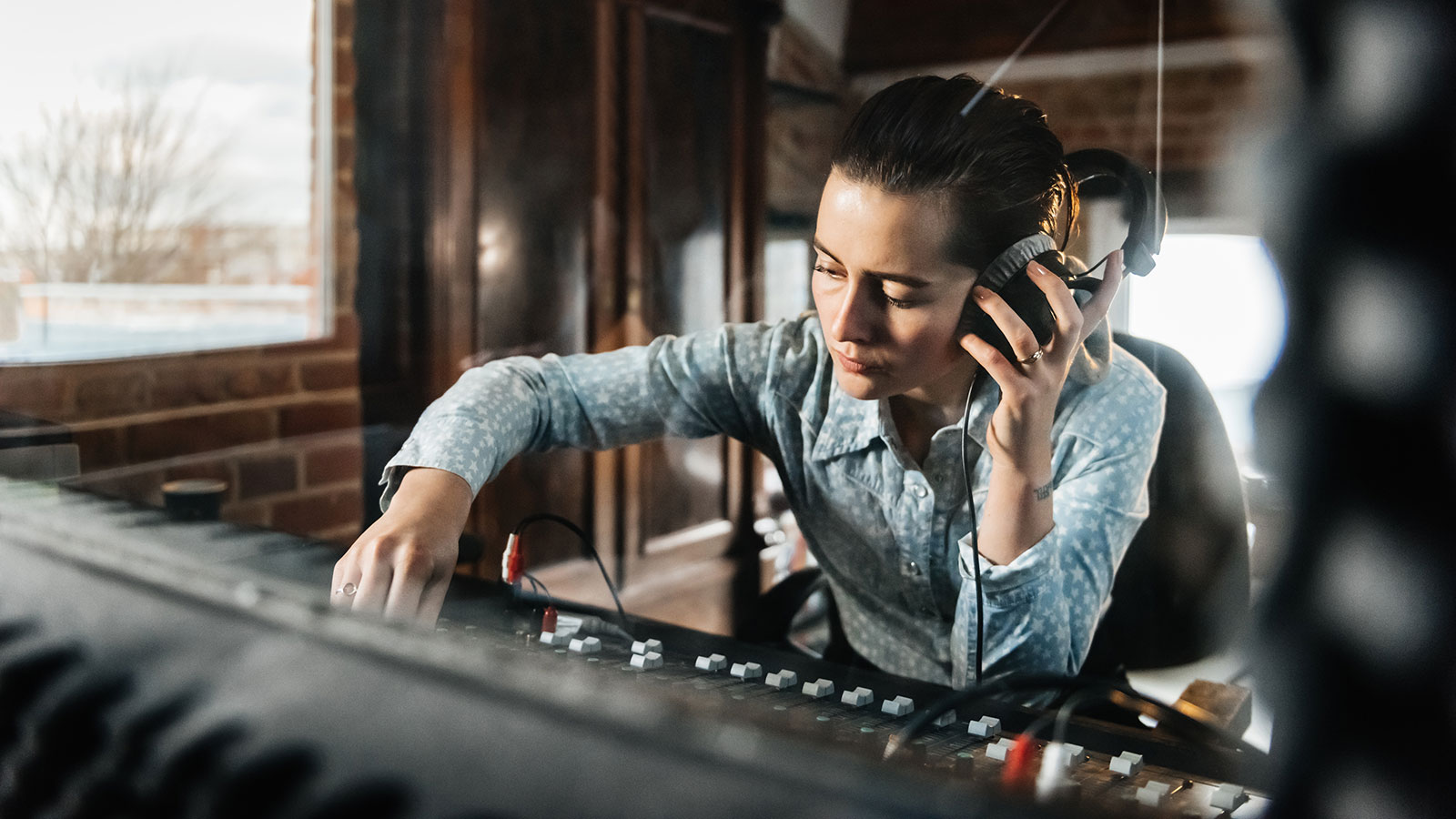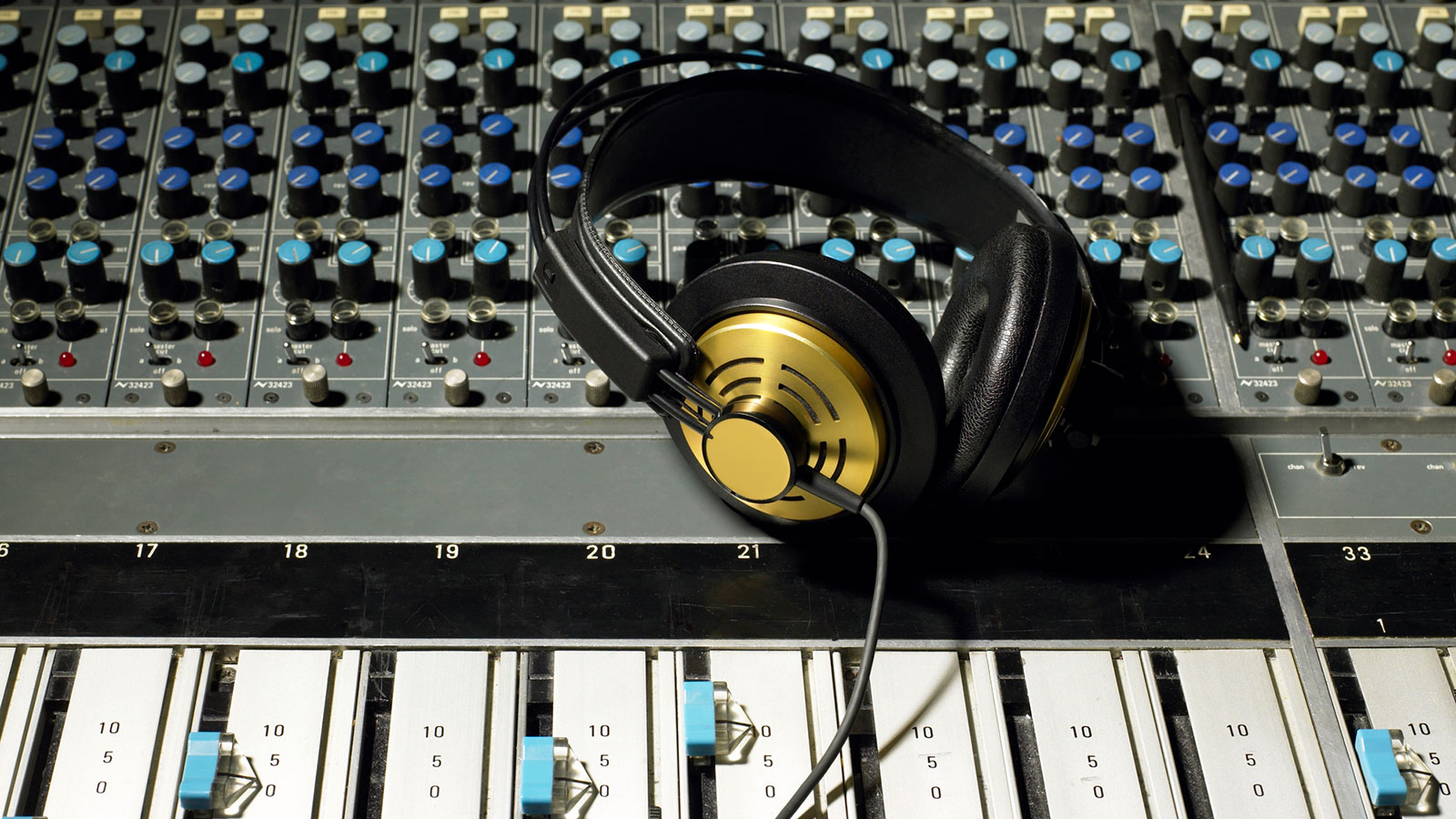11 tips for anyone who wants a career in a recording studio
It's all about attitude, application and persistence...

Want all the hottest music and gear news, reviews, deals, features and more, direct to your inbox? Sign up here.
You are now subscribed
Your newsletter sign-up was successful
RECORDING WEEK 2022: It's no secret that, as more people have started to record at home, traditional recording studios have suffered, and the situation was hardly helped by the pandemic.
However, there is still a place for the pro studio in the music industry – and there are still careers in studios to be had. Here are 11 tips for anyone who wants to find work in a professional studio environment...
1. Be realistic
Set your expectation levels to stun! If you think getting a career in a recording studio means you’ll simply be hanging around with famous pop stars, chewing the fat, then think again.
Working in a recording environment might not be as glamorous as you expect. Long hours, low pay, and watching the same process over and over again can be the norm rather than the exception. Make sure you have some realistic expectations and you won’t be disappointed.
2. Get an education
At school, music, maths and physics are good options to excel in. Beyond school, there is the obvious route of choosing a course in recording and music technology at college - the Music and Sound Recording Tonmeister course at Surrey University is rated particularly highly, with many a recording engineer that we’ve interviewed having achieved work through its studio placement scheme. But there are other great courses from the likes of Point Blank, SAE and many more.

3. Stand out from the crowd
Find different ways to be better than the next person. The studio career choice is a popular one and while many people opt to be good at the theory side, or using studio gear, it’s actually some of the less obvious skills, like building websites, accounting and general DIY that might well be more in demand at your local recording studio.
Have some of these extra skills up your sleeve and it could pay dividends. And being able to make great tea is not just an optional skill, it’s an essential one!
Want all the hottest music and gear news, reviews, deals, features and more, direct to your inbox? Sign up here.
4. Be a people person
An extension of your skillset should be an ability to simply get on with people. Being polite, courteous and friendly are traits that will set you up well for life, not just working in a studio, but in the often stressful enclosure of a recording space. Having an unflappable nature and a smile constantly etched on your face will fill those around you with confidence, and make every recording session go a lot better.
5. Attend studio events
You’d be surprised at how many studios open up their doors to the outside world so that you can come along, meet some people, learn and increase your contacts within the industry. A great career is very often just one chance meeting away...
6. Expect to work for free…
...At least at first. Internships and work experience are common practice in the recording world, as they increasingly are in many other careers.
The sad fact is that, the more exciting the career, the more this goes on. But don’t be sad about it! Treat these placements as an education where you soak up knowledge from those more experienced than you.
Getting paid in someone else’s life skills rather than hard cash might not seem like an ideal start when you’re trying to get a mortgage, but those early experiences, soaking up knowledge, will pay you back with interest down the line.

7. Listen
And talking of working with those vastly more experienced than you, one great expression to remember when working in a recording studio is to ‘listen more than you talk’. This applies not only to the music - although that is obviously a key part of the job - but also that mentor who is sharing their studio knowledge with you.
One famous producer we interviewed also noted that his underlings should never turn their backs to him while he imparts his wisdom, or risk his wrath. Might be just him, but it’s definitely something worth bearing in mind!
8. Be proactive
Work with as many artists as you can - recording, mixing, and gaining any kind of sonic experience you can get. Start with family, friends or any acquaintance you have who makes music and offer to help them make their projects sound better! Building up a fantastic recording track record, no matter where you start, could lead to a great career.
9. Learn your process
It sounds obvious, but you should learn about the recording chain from microphone to monitor and how each and every component along it impacts on the sound. Understand the physics of recording and indeed the acoustics of the room in which the recording takes place.

10. Learn the gear
You're probably already keen on recording hardware and software but if you get to know more DAW shortcuts than the next person, that could end up making an impression down the line, so get those manuals out.
11. Be persistent and flexible
The route to a studio career is not an easy one to map out. Expect to have periods where there may not be work so have other careers and skills to fall back on, but persistence does pay. Get out, meet people, be friendly and make great tea. You never know where it might lead.
Computer Music magazine is the world’s best selling publication dedicated solely to making great music with your Mac or PC computer. Each issue it brings its lucky readers the best in cutting-edge tutorials, need-to-know, expert software reviews and even all the tools you actually need to make great music today, courtesy of our legendary CM Plugin Suite.
